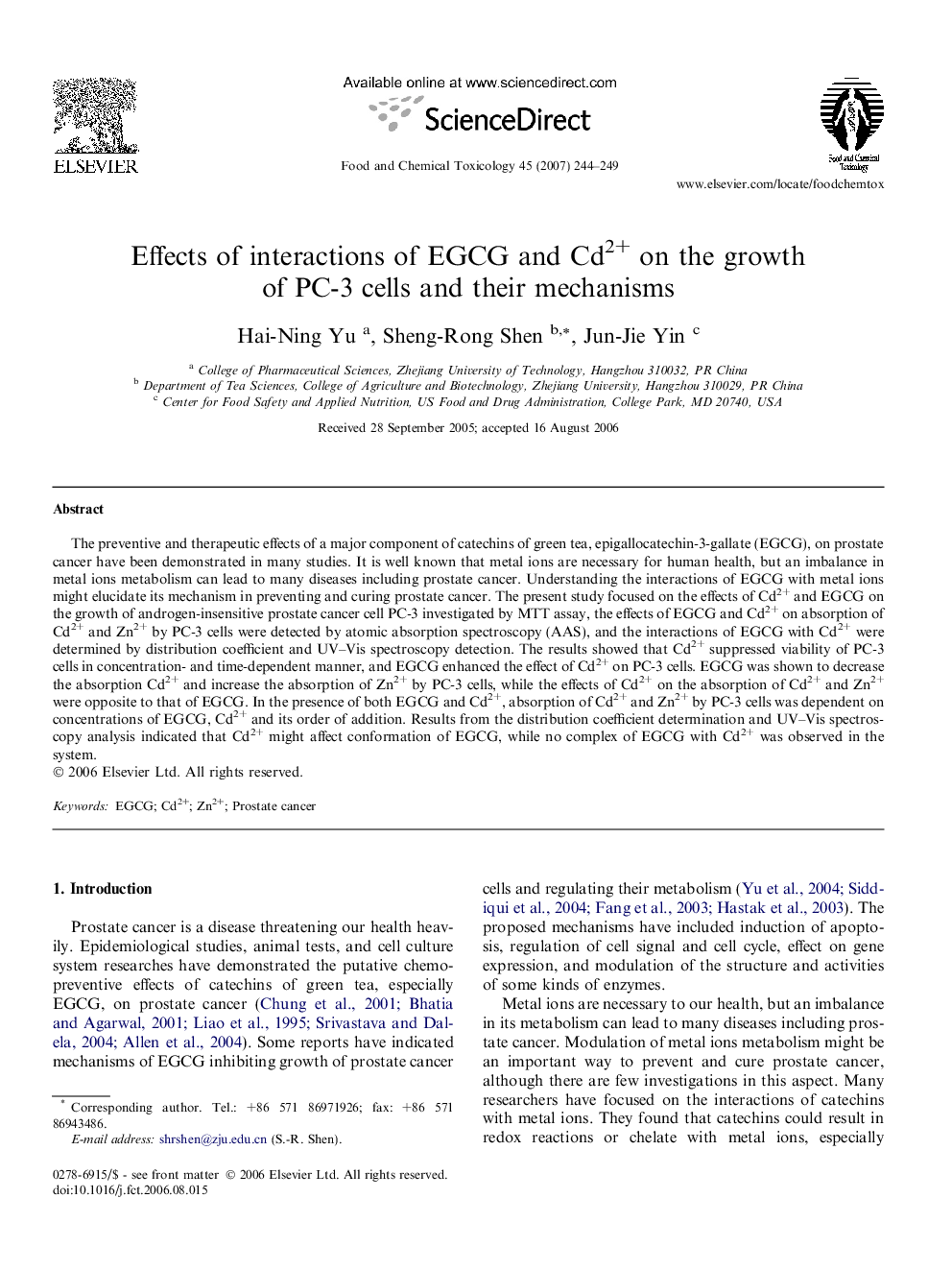| Article ID | Journal | Published Year | Pages | File Type |
|---|---|---|---|---|
| 2586942 | Food and Chemical Toxicology | 2007 | 6 Pages |
The preventive and therapeutic effects of a major component of catechins of green tea, epigallocatechin-3-gallate (EGCG), on prostate cancer have been demonstrated in many studies. It is well known that metal ions are necessary for human health, but an imbalance in metal ions metabolism can lead to many diseases including prostate cancer. Understanding the interactions of EGCG with metal ions might elucidate its mechanism in preventing and curing prostate cancer. The present study focused on the effects of Cd2+ and EGCG on the growth of androgen-insensitive prostate cancer cell PC-3 investigated by MTT assay, the effects of EGCG and Cd2+ on absorption of Cd2+ and Zn2+ by PC-3 cells were detected by atomic absorption spectroscopy (AAS), and the interactions of EGCG with Cd2+ were determined by distribution coefficient and UV–Vis spectroscopy detection. The results showed that Cd2+ suppressed viability of PC-3 cells in concentration- and time-dependent manner, and EGCG enhanced the effect of Cd2+ on PC-3 cells. EGCG was shown to decrease the absorption Cd2+ and increase the absorption of Zn2+ by PC-3 cells, while the effects of Cd2+ on the absorption of Cd2+ and Zn2+ were opposite to that of EGCG. In the presence of both EGCG and Cd2+, absorption of Cd2+ and Zn2+ by PC-3 cells was dependent on concentrations of EGCG, Cd2+ and its order of addition. Results from the distribution coefficient determination and UV–Vis spectroscopy analysis indicated that Cd2+ might affect conformation of EGCG, while no complex of EGCG with Cd2+ was observed in the system.
